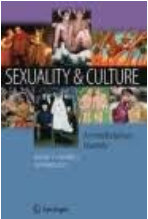In this article, I discuss the unique masculine repertoire of Israeli clients of street-based sex work. In doing so, I aim to reveal the deep meaning of sex consumption on the street while reflecting on the way in which universal and local masculine repertoires are negotiated and contested. Based on a discourse analysis of online sexual reports, the article focuses on clients' metaphoric language of themselves as hunters when describing sexual encounters on the street, arguing that the hunting metaphor has become a channel through which a community of "warriors" has been built. The sexual script of the hunter is a mixture of intersecting characteristics from the universal dominant repertoire of hegemonic, heteronormative hyper-masculinity with characteristics from the two Israeli masculine hegemonic repertoires: the combat soldier and the Halutz (pioneer). The sexual script of the hunter thus functions as a platform on which other relations of power, especially between men themselves, are played out and contested.
Keywords Masculinity · Hegemonic masculinity · Street-based sex work · Clients · Online communities · Israeli society


